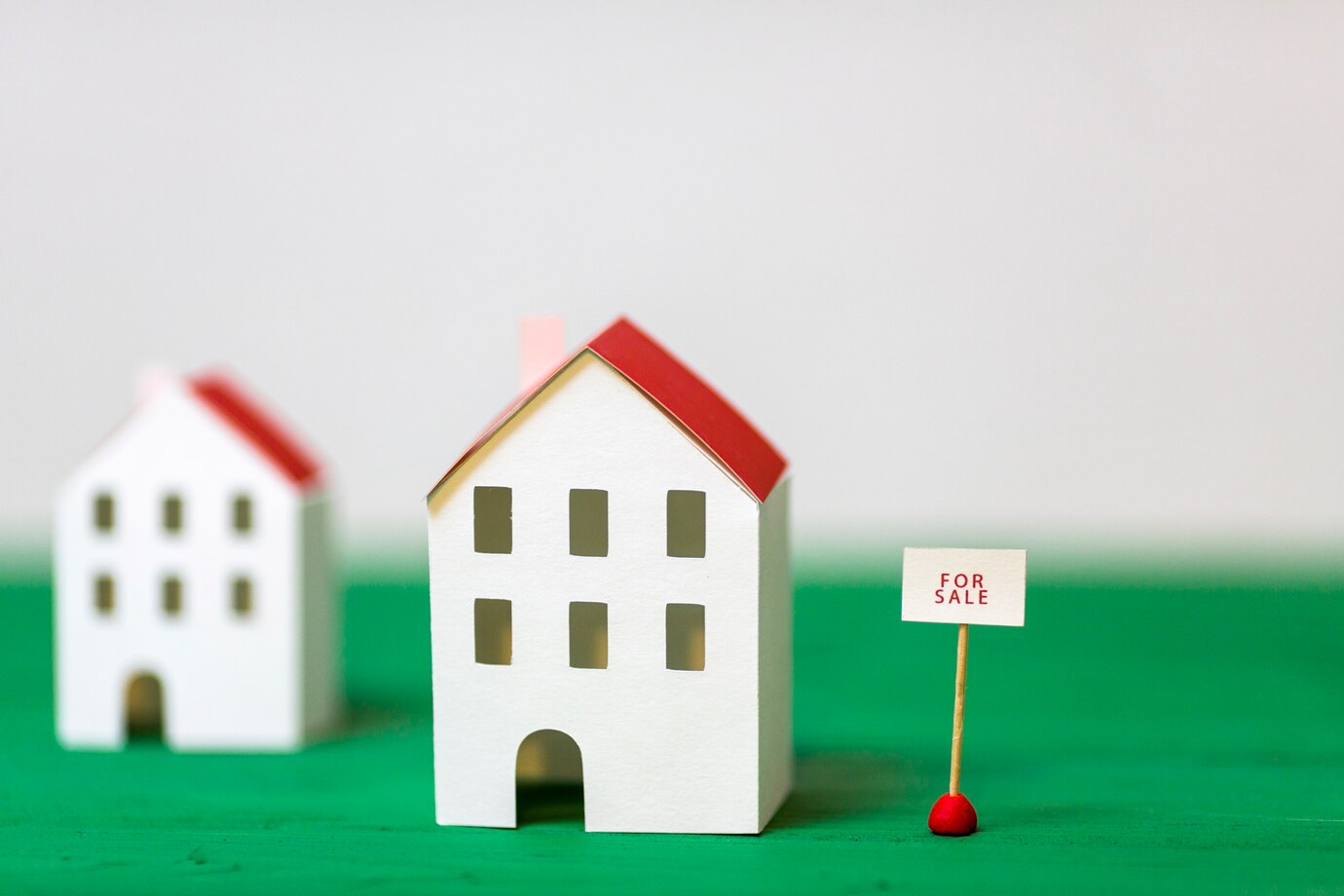
New home purchase mortgages in Winnipeg are loans designed to help first-time and repeat buyers finance their dream homes. These mortgages come with various options, terms, and conditions tailored to meet the unique needs of Winnipeg’s housing market and its residents.
Key Takeaways
- New home purchase mortgages in Winnipeg offer diverse options for buyers
- Down payment requirements typically range from 5% to 20% of the home’s value
- Fixed-rate and variable-rate mortgages are the two main types available
- CMHC insurance is mandatory for down payments less than 20%
- Pre-approval can strengthen your position when making an offer
- Local lenders and mortgage brokers can provide personalized advice
- Credit score and income stability are crucial factors in mortgage approval
- First-time homebuyer programs may offer additional benefits and incentives
Understanding Winnipeg’s Housing Market

Winnipeg’s housing market has its own unique characteristics that influence mortgage options and home buying decisions. The city’s affordable housing prices compared to other major Canadian cities make it an attractive option for many first-time buyers.
Current Market Trends
The Winnipeg real estate market has seen steady growth in recent years. Housing prices have increased, but remain more affordable than in cities like Toronto or Vancouver. This affordability factor plays a significant role in the types of mortgages buyers seek and the terms lenders offer.
Impact on Mortgage Options
Due to the relatively lower housing prices in Winnipeg, buyers may find it easier to meet down payment requirements and qualify for mortgages. However, it’s important to note that lenders still maintain strict criteria for mortgage approval, including credit score, income stability, and debt-to-income ratio.
Types of New Home Purchase Mortgages in Winnipeg
When looking to buy a new home in Winnipeg, you’ll encounter several types of mortgages. Each has its own features and benefits, catering to different financial situations and preferences.
Fixed-Rate Mortgages
Fixed-rate mortgages are popular among Winnipeg buyers who prefer stability and predictability in their monthly payments. With this type of mortgage, your interest rate remains the same throughout the term, typically ranging from 1 to 10 years.
Variable-Rate Mortgages
Variable-rate mortgages offer potentially lower initial rates but come with the risk of rate fluctuations. These mortgages are tied to the Bank of Canada’s prime rate, which means your payments could change over time.
Open vs. Closed Mortgages
Open mortgages allow for more flexibility in terms of prepayment and early payoff, but usually come with higher interest rates. Closed mortgages, on the other hand, offer lower rates but have restrictions on prepayments and may incur penalties for early payoff.
Down Payment Considerations for Winnipeg Buyers
The down payment is a crucial aspect of securing a new home purchase mortgage in Winnipeg. It not only affects your mortgage amount but also influences the terms and conditions of your loan.
Minimum Down Payment Requirements
In Winnipeg, as in the rest of Canada, the minimum down payment is 5% for homes priced under $500,000. For homes between $500,000 and $999,999, it’s 5% on the first $500,000 and 10% on the remainder. Homes priced at $1 million or more require a 20% down payment.
Impact of Down Payment on Mortgage Terms
A larger down payment can lead to more favorable mortgage terms, including lower interest rates and reduced mortgage insurance premiums. It also decreases your overall loan amount, potentially saving you thousands in interest over the life of your mortgage.
Mortgage Insurance in Winnipeg
Mortgage insurance is a crucial component of many new home purchase mortgages in Winnipeg, especially for those with smaller down payments.
CMHC Insurance
Canada Mortgage and Housing Corporation (CMHC) insurance is mandatory for mortgages with down payments less than 20%. This insurance protects the lender in case of default but is paid for by the borrower.
Private Mortgage Insurance Options
Some lenders in Winnipeg offer private mortgage insurance as an alternative to CMHC insurance. These options may have different requirements and premiums, so it’s worth exploring if you’re looking to minimize your mortgage costs.
Qualifying for a New Home Purchase Mortgage in Winnipeg
Securing a mortgage for a new home purchase in Winnipeg involves meeting certain criteria set by lenders and regulatory bodies.
Credit Score Requirements
Most lenders in Winnipeg require a minimum credit score of 680 for conventional mortgages. However, some may consider scores as low as 600 for insured mortgages. A higher credit score can lead to better interest rates and terms.
Income and Employment Verification
Lenders will verify your income and employment status to ensure you can afford the mortgage payments. Typically, they look for stable employment and a debt-to-income ratio of no more than 39% for housing costs and 44% for total debts.
Debt-to-Income Ratio
Your debt-to-income ratio is a key factor in mortgage approval. Winnipeg lenders generally prefer this ratio to be below 44%, meaning your total monthly debts (including your potential mortgage payment) should not exceed 44% of your gross monthly income.
The Mortgage Application Process in Winnipeg
Applying for a new home purchase mortgage in Winnipeg involves several steps. Understanding this process can help you navigate it more effectively.
Pre-Approval Benefits
Getting pre-approved for a mortgage can give you a clear idea of how much you can borrow and strengthen your position when making an offer on a home. Many Winnipeg real estate agents recommend getting pre-approved before starting your home search.
Required Documentation
When applying for a mortgage in Winnipeg, you’ll need to provide various documents, including:
- Proof of income (pay stubs, T4 slips)
- Notice of Assessment from the last two years
- Bank statements
- Proof of down payment
- List of assets and liabilities
Appraisal and Home Inspection
Lenders typically require a professional appraisal of the property you’re looking to purchase. Additionally, while not always mandatory, a home inspection is highly recommended to identify any potential issues with the property.
Mortgage Terms and Amortization in Winnipeg
Understanding mortgage terms and amortization periods is crucial when choosing a new home purchase mortgage in Winnipeg.
Common Mortgage Terms
Mortgage terms in Winnipeg typically range from 1 to 10 years, with 5-year terms being the most common. The term is the length of time you’re committed to a specific interest rate and lender.
Amortization Periods
The amortization period is the total time it takes to pay off your mortgage. In Winnipeg, amortization periods can be up to 30 years for conventional mortgages and up to 25 years for insured mortgages.
First-Time Homebuyer Programs in Winnipeg
Winnipeg offers several programs to assist first-time homebuyers in purchasing their new homes.
Federal Programs
The First-Time Home Buyer Incentive is a federal program that offers 5% or 10% of the home’s purchase price to put toward a down payment. This shared equity mortgage reduces your monthly mortgage payments without increasing your down payment.
Provincial and Municipal Initiatives
Manitoba offers programs like the Rural Homeownership Program and the Affordable Homeownership Program, which provide financial assistance to eligible first-time buyers. Check with local housing authorities for current initiatives specific to Winnipeg.
Working with Mortgage Professionals in Winnipeg

Navigating the mortgage landscape in Winnipeg can be complex. Working with local professionals can help you find the best mortgage for your situation.
Mortgage Brokers vs. Bank Lenders
Mortgage brokers in Winnipeg can offer access to multiple lenders and potentially better rates. Bank lenders, on the other hand, may offer package deals if you have other financial products with them. Consider consulting both to find the best option.
The Role of Real Estate Agents
While not directly involved in the mortgage process, real estate agents in Winnipeg can provide valuable insights into the local market and often have relationships with lenders and mortgage brokers.
Comparing Mortgage Offers in Winnipeg
When shopping for a new home purchase mortgage in Winnipeg, it’s important to compare offers from multiple lenders.
Interest Rates and APR
While interest rates are important, also consider the Annual Percentage Rate (APR), which includes additional costs and gives a more comprehensive view of the mortgage’s total cost.
Additional Fees and Charges
Be aware of additional fees such as appraisal fees, legal fees, and land transfer taxes. These can add significantly to the overall cost of buying a home in Winnipeg.
Closing Costs for New Home Purchases in Winnipeg
When budgeting for your new home purchase in Winnipeg, don’t forget to account for closing costs.
Typical Closing Costs
Closing costs in Winnipeg typically range from 1.5% to 4% of the home’s purchase price. These may include:
- Legal fees
- Land transfer tax
- Title insurance
- Home inspection fees
- Appraisal fees
Land Transfer Tax in Manitoba
Manitoba has a land transfer tax that applies to property purchases. The tax is calculated on a sliding scale based on the property’s value, with rates ranging from 0.5% to 2%.
Managing Your Mortgage After Purchase
After securing your new home purchase mortgage in Winnipeg, proper management can save you money and reduce your mortgage term.
Prepayment Options
Many mortgages in Winnipeg allow for annual prepayments of 10-20% of the original mortgage amount. Taking advantage of these options can significantly reduce your interest costs over time.
Refinancing Considerations
Refinancing your mortgage can potentially lower your interest rate or provide access to home equity. However, it’s important to weigh the costs and benefits before making this decision.
The Impact of Interest Rates on Winnipeg Mortgages
Interest rates play a significant role in determining the cost of your new home purchase mortgage in Winnipeg.
Current Rate Environment
As of [current year], interest rates in Winnipeg remain relatively low by historical standards. However, rates can change based on economic conditions and Bank of Canada policies.
Future Rate Projections
While it’s impossible to predict future rates with certainty, staying informed about economic trends and Bank of Canada announcements can help you make more informed mortgage decisions.
Sustainable Homeownership in Winnipeg
Sustainable homeownership goes beyond just securing a mortgage. It involves long-term financial planning and responsible home maintenance.
Budgeting for Homeownership
When budgeting for homeownership in Winnipeg, consider not just your mortgage payments, but also property taxes, utilities, maintenance, and potential repairs.
Home Maintenance and Upkeep
Regular maintenance can prevent costly repairs and help maintain your home’s value. Winnipeg’s climate, with its cold winters and hot summers, makes proper home maintenance particularly important.
Navigating Mortgage Challenges in Winnipeg
Even with careful planning, challenges can arise during the mortgage process or after purchasing your home in Winnipeg.
Dealing with Mortgage Rejection
If your mortgage application is rejected, don’t lose hope. Work on improving your credit score, saving for a larger down payment, or consider alternative lenders.
Handling Financial Difficulties
If you face financial difficulties after purchasing your home, communicate with your lender early. Many Winnipeg lenders offer options like payment deferrals or refinancing to help homeowners through tough times.
The Future of Mortgages in Winnipeg

The mortgage landscape in Winnipeg is continually evolving, influenced by technological advancements, changing regulations, and shifting market conditions.
Digital Mortgages
Online mortgage applications and approvals are becoming more common in Winnipeg, offering convenience and potentially faster processing times.
Regulatory Changes
Stay informed about any changes to mortgage regulations, as these can affect your ability to qualify for a mortgage or the terms you’re offered.
Sources
- New home purchase mortgages saw a decrease in 2020: According to the Mortgage Bankers Association’s (MBA) weekly applications survey, new home purchase mortgage applications decreased by 16% in 2020 compared to 2019.
- Fixed-rate mortgages are popular: In 2020, fixed-rate mortgages accounted for 95% of all new home purchase loans, according to the Federal Housing Finance Agency (FHFA).
- First-time homebuyers made up a smaller percentage: In 2020, first-time homebuyers made up only 31% of all homebuyers, the lowest percentage since 1987, according to the National Association of Realtors (NAR).
- Low interest rates drove demand: Low interest rates played a significant role in the housing market’s resilience during the COVID-19 pandemic. The average interest rate for a 30-year fixed-rate mortgage was 2.96% in 2020, the lowest annual average since 1971.
Making Informed Mortgage Decisions in Winnipeg
Navigating new home purchase mortgages in Winnipeg requires careful consideration of various factors, from interest rates and down payments to long-term financial planning. By understanding the local market, working with trusted professionals, and thoroughly researching your options, you can make informed decisions that lead to successful and sustainable homeownership in Winnipeg.
| Mortgage Type | Typical Interest Rate Range | Minimum Down Payment | Key Features |
|---|---|---|---|
| Fixed-Rate | 2.5% – 4.5% | 5% – 20% | Stable payments, predictable costs |
| Variable-Rate | Prime – 1% to Prime + 1% | 5% – 20% | Potentially lower initial rates, fluctuating payments |
| Closing Cost | Typical Range in Winnipeg | Notes |
|---|---|---|
| Legal Fees | $700 – $2,000 | Varies based on complexity of transaction |
| Land Transfer Tax | 0.5% – 2% of purchase price | Calculated on a sliding scale |
| Home Inspection | $300 – $500 | Optional but recommended |
| Title Insurance | $200 – $300 | Protects against title defects |
- Common reasons for mortgage rejection in Winnipeg:
- Low credit score (below 680 for conventional mortgages)
- High debt-to-income ratio (above 44%)
- Insufficient down payment
- Unstable employment history
- Property not meeting lender’s criteria
Remember, every homebuyer’s situation is unique. What works for one person may not be the best option for another. Always consult with financial professionals and conduct thorough research before making any major decisions regarding new home purchase mortgages in Winnipeg. For more information, visit or website or contact us!